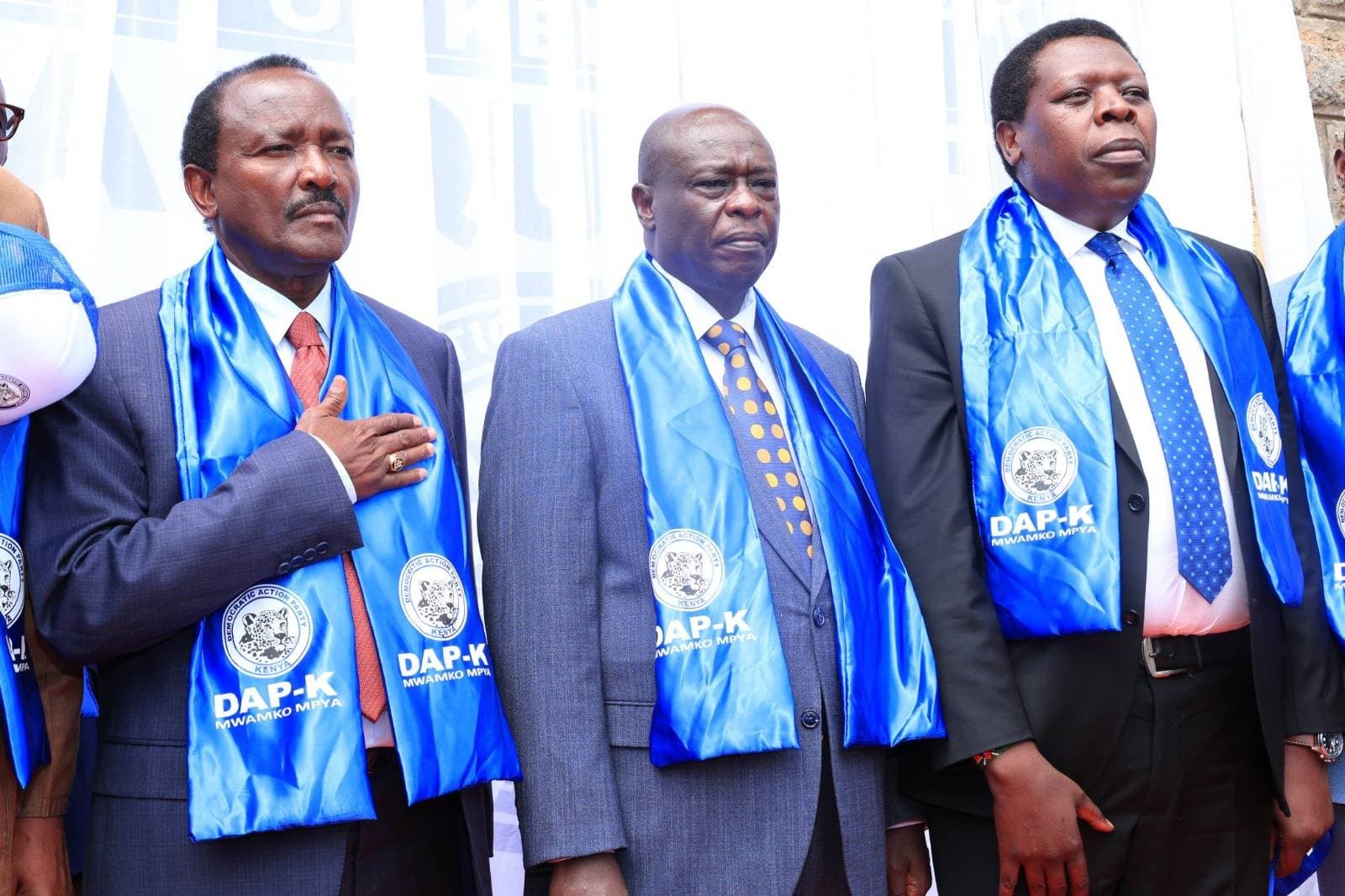We're loading the full news article for you. This includes the article content, images, author information, and related articles.
The electoral commission's refusal to accept the withdrawal of a DCP candidate in the Malava by-election has complicated the United Opposition's plan to field a single challenger against the ruling UDA party, citing procedural failures.

NAIROBI – The Independent Electoral and Boundaries Commission (IEBC) has formally disputed the withdrawal of Democratic for Citizens' Party (DCP) candidate Edgar Busiega from the upcoming Malava Constituency by-election, a move that threatens to derail the United Opposition's unified electoral strategy. In a statement issued on Wednesday, November 5, 2025, Malava's returning officer, Salim Abdalla, confirmed that Mr. Busiega remains a valid contestant because the withdrawal did not adhere to the legally mandated procedures.
The decision is a significant blow to a strategic pact announced on October 30, 2025, where Mr. Busiega was to step down in favour of Seth Panyako of the Democratic Action Party of Kenya (DAP-K). This agreement was part of a broader United Opposition plan to consolidate its support base and avoid splitting votes in the November 27, 2025 polls, thereby mounting a stronger challenge to President William Ruto's United Democratic Alliance (UDA) party.
According to the IEBC, a candidate's withdrawal from an election in Kenya is governed by strict legal protocols. A formal written notice, personally signed by the candidate and accompanied by a copy of their national identification document for verification, must be submitted to the returning officer. The commission stated that Mr. Busiega had not followed this due process, rendering his announced withdrawal invalid in the eyes of the electoral body. As a result, his name and party affiliation will remain on the ballot paper for the Malava parliamentary seat, which became vacant following the death of former MP Moses Malulu Injendi.
The development puts the United Opposition in a precarious position. The coalition, which includes key figures like Wiper leader Kalonzo Musyoka and DAP-K's Eugene Wamalwa, had publicly celebrated the consensus in Malava as a sign of growing political maturity and a template for future cooperation ahead of the 2027 General Election. The strategy was designed to prevent a repeat of past elections where multiple opposition candidates split the vote, handing an advantage to the ruling coalition. Similar agreements were successfully reached in other areas, such as Magarini, where a Wiper candidate stepped down for a DCP contender.
The United Opposition had framed the Malava pact as a critical test of its unity. At the time of the announcement, DAP-K leader Eugene Wamalwa expressed confidence that Mr. Panyako was a "sure bet" to win the seat with consolidated support. The coalition now faces the challenge of campaigning for its preferred candidate, Mr. Panyako, while another of its affiliate party's candidates, Mr. Busiega, is also officially in the race. This could create confusion among voters and risks achieving the very vote-splitting the alliance sought to avoid.
The ruling UDA party, which has fielded David Athman Ndakwa, is poised to benefit from any division within the opposition camp. UDA has been actively campaigning in the region, with party leaders urging voters to support their candidate to ensure the constituency aligns with the national government for development purposes.
The initial input for this story incorrectly identified Deputy President Rigathi Gachagua as a DCP party leader within the opposition. This is factually inaccurate. Mr. Gachagua is the Deputy President of Kenya and a senior leader in the ruling UDA party. Several search results, however, show a widespread and erroneous media attribution of the DCP leadership to a "Rigathi Gachagua," which appears to be a case of mistaken identity or a reporting error across multiple outlets. The DCP is a component of the United Opposition, which stands in direct competition with the UDA. FURTHER INVESTIGATION IS REQUIRED to clarify the party's formal leadership structure.
The IEBC's adherence to procedural technicalities underscores the legal complexities that political parties must navigate in coalition-building. While the political agreement between DCP and DAP-K was announced publicly, its execution failed to meet the electoral law's requirements. It remains to be seen how the United Opposition will manage the fallout. Their options include launching a unified campaign to educate voters on their preferred candidate or potentially seeking legal recourse, though the window for dispute resolution, which ran until October 21, has passed.
As the November 27 polling day approaches, the situation in Malava will be closely watched as a litmus test of the opposition's ability to maintain discipline and effectively implement its electoral strategies against a formidable and well-organized UDA machinery.
Keep the conversation in one place—threads here stay linked to the story and in the forums.
Sign in to start a discussion
Start a conversation about this story and keep it linked here.
Other hot threads
E-sports and Gaming Community in Kenya
Active 9 months ago
The Role of Technology in Modern Agriculture (AgriTech)
Active 9 months ago
Popular Recreational Activities Across Counties
Active 9 months ago
Investing in Youth Sports Development Programs
Active 9 months ago
Key figures and persons of interest featured in this article